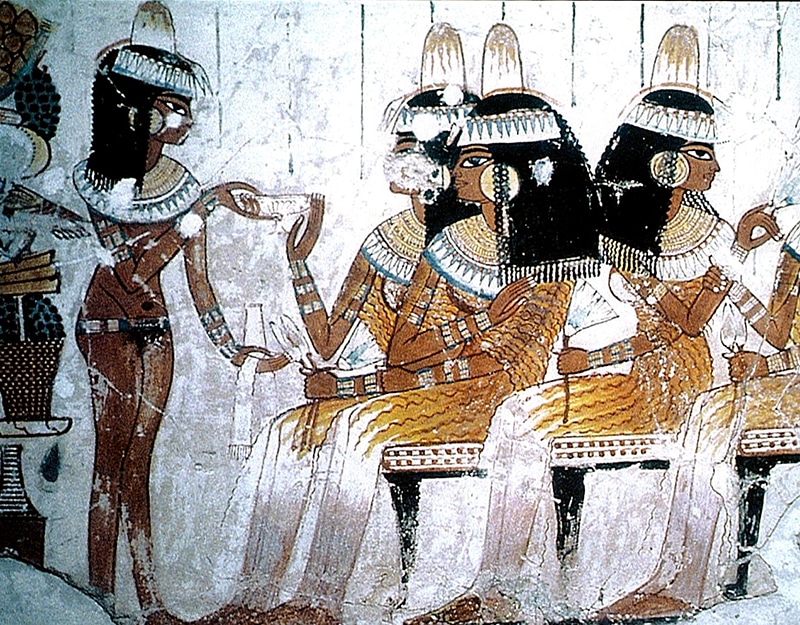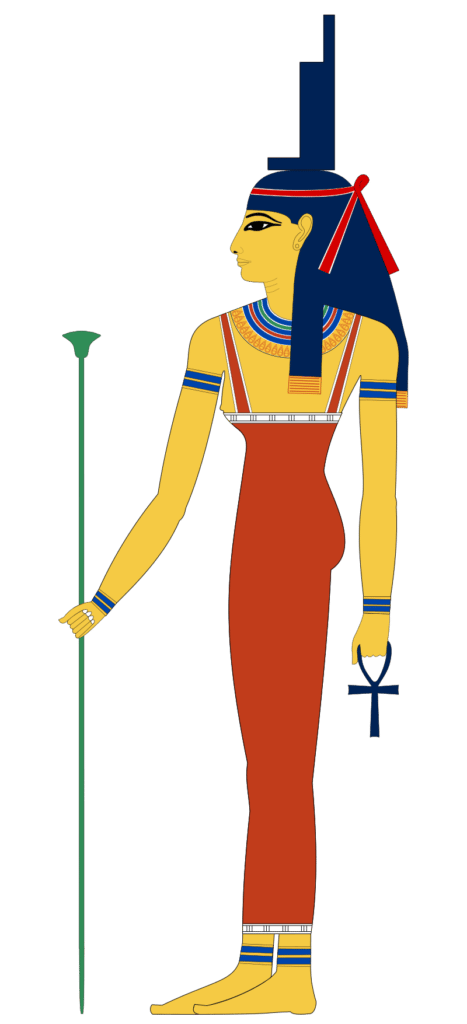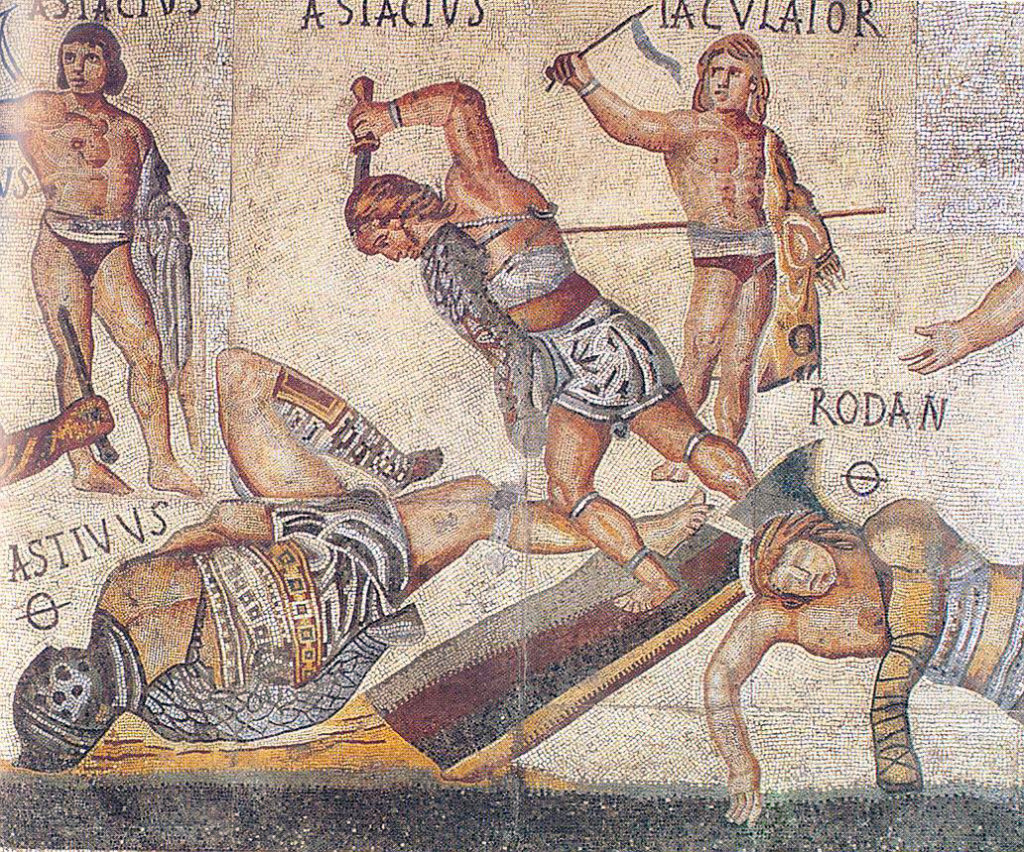Last updated on July 29th, 2022 at 11:04 pm
Love and marriage have been around since the beginning of time. However, each culture has its unique way of celebrating love and marriage. In Ancient Egypt, love and marriage were fundamental aspects of society. Let’s look at what this looked like in Ancient Egypt.

Gods and Goddesses Were Important to Egyptian Culture
The ancient Egyptians had a complex network of gods and goddesses that explained their culture and evolved according to their beliefs. Certain gods and goddesses rose to importance throughout their history.
The Egyptians had many gods and goddesses that represented love and marriage at some point or another, but the primary goddess was Hathor. She was a powerful and popular goddess who dictated many aspects of Egyptian life.
Citizens would pray to her for fertility, love, and beauty, yet she was also the goddess of dancing, music, and pleasure. She may have been a protector of women, but men worshiped her. Hathor had priests and priestesses in her temple. Hathor was the goddess of beauty, so wearing cosmetics was a form of worship to Hathor. When Egyptians married, a festival honoring their union was thrown in honor of her and other gods.
Isis, often confused as the goddess of love and fertility, was the goddess of healing and magic. She was a very popular goddess who was said to be the mother of Horus. She’s well-known as Isis, her Greek name, but the Egyptians called her Aset or “The Queen of the Throne.”

How Egyptians Treated Marriage
The ancient Egyptians believed that marriage was essential, and the lifespan of Egyptians at this time was approximately 30 years. Due to the relatively short lifespan, marriages happened when men and women were young and seen to continue your family lineage and make sure that your property stayed in the family.
As a society, Egyptians were quite progressive regarding gender equality, but men and women had different paths when it came to marriage. For these reasons, most marriages were arranged by the parents, and it was to secure personal advancement and community stability overall.
The Role of Women in Marriage
As we mentioned, women had a lot more rights than other cultures at this time, but they were still seen as the primary caretaker of their families and intended to submit to their husband’s authority. A woman’s role in marriage was to produce offspring, take care of the home, and provide stability though she could work and own a business.
Because of this critical role, women could marry at puberty or around 14, but sometimes as early as 12 years of age. Then, provided the woman wasn’t of royal lineage, she would train in managing the household, caring for children, elderly family members, and their pets. Despite love being a concept that Egyptians believed to be necessary, women had little or no say in their choice of husbands.
The Role of Men in Marriage
Regardless of status, men were afforded more freedom in marriage roles; yet, as expected, royalty achieved the highest benefits from marriage than any other social status. On the other hand, men waited until they were older to marry. They would be around 16 to 20 years old and had to prove that they could support a family before marriage.
If they weren’t royalty, usually, they would have to learn their father’s trade and develop some mastery of it by this age. Understanding their father’s work contributed to the later marriage age of most men.
Like their female counterparts, their role was closely related to creating and maintaining a family. They were the primary provider and held ultimate authority in the household. If men were of royal heritage, such as the Pharoah, they could have multiple wives; otherwise, it was rare that any man could support more than one wife.
The Concept of Love and Marriage As A Whole
Love was a fundamental concept to the ancient Egyptians; they believed in passionate and enduring love and associated it with the afterlife.
So, even though many marriages occurred based on social status, personal habits, and lineage, many couples still worked to ensure that both parties were content. In that spirit, chastity before marriage isn’t essential since the Egyptians considered sexuality a natural part of life.
Historically, greater efforts to ensure that the wife was happy were commonplace as the wife’s responsibilities were more demanding. However, despite society’s extra effort to provide a “happy wife, happy life” scenario, men and women were considered equals in marriage.
In ancient Egyptian literature, you often see husbands and wives refer to each other as “brother” and “sister.” This wasn’t literally, but to signify they were equals. However, while incest was prohibited, royal families often married their own to keep power within the family. This was especially true for Pharaohs who married their sisters or half-sisters.
How Marriage Ceremonies Work in Ancient Egypt
Marriage ceremonies were a joyous affair in Egyptian society. However, unlike traditional marriages today, there was no requirement for a legal ceremony. Usually, when a man decided to marry, he had his household, and they didn’t marry until they could afford to live independently.
However, aside from royalty, the bride would move her belongings to the husband’s estate when a couple decided to wed. A minor celebration would occur, and then they were officially married. It was also common for a wife to receive a ring to symbolize her eternal marriage to her husband.
Any documentation confirming the marriage detailed what items belonged to the wife and those items the husband was giving. These marriage contracts were very similar to a modern prenuptial agreement and indicated the bride price (a reverse dowry) and mentioned what would be paid to the wife if the husband divorced her. The agreement was signed in the presence of witnesses and was the only evidence that recorded marriage between two individuals.
Divorce in Ancient Egypt
The process of divorce in ancient Egypt was relatively easy. If either the husband or wife wanted to end the marriage, they could do so without legalities. Instead, they had to state their desire to divorce in front of witnesses, and the marriage was dissolved. The belongings were divided as prescribed by the agreement, and if there were children, they belonged with the mother.
There was no real stigma associated with divorce in ancient Egyptian society, and it was in the best interest of both parties if they were unhappy. The husband was usually required to pay support to the wife until she remarried, but the charge of infidelity would strip the woman of her rights in divorce.
Overall, love and marriage were taken quite seriously by the ancient Egyptians. They believed it was a natural part of life and something to be celebrated. They thought it was a natural part of life. Furthermore, they were considered equals in the eyes of the law and society. So, while love wasn’t always the primary reason for marriage, it shaped long and healthy relationships.

